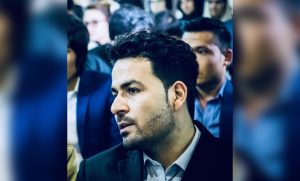Increased Violence has Diminished Hopes for Peace

Some civil society activists in Helmand province say that the first and the most important issue that the negotiating parties in the peace talks must agree on is the establishment of a ceasefire. Only after a ceasefire they can discuss other issues.
In an interview with the CSHRN, Mr. Hamidi said that ceasefire is a priority and the international community must put pressure on the Taliban to achieve it.
CSHRN: What is your assessment of what has happened so far in the peace talks? Can we hope for positive outcome?
Hamidi: In the beginning of the negotiations, there were high expectations; but increased violence diminishes hopes for positive outcome. In my opinion, the parties involved in the peace talks do not have the capacity to reach a political agreement and the disagreement may continue for some time. Overall, the negotiating teams’ inflexibility, unrealistic approaches, and the escalation of violence have reduced hopes for achieving peace.
CSHRN: In your opinion, given the history of the Taliban, what will be the consequence of negotiation with them?
Hamidi: The Taliban’s strategy is based on violence. Without a peace agreement, they will continue to fight, as they have for twenty years. The government of Afghanistan is unable to continue the war and the international community has no obligation to eliminate the Taliban. Regarding women, it should be said that this group does not accept women’s rights and opposes their rights through its interpretation of religion, which women will not accept this. Even some women in Taliban-dominated areas are concerned about their rights. In cities, women can advocate for their rights, and it is not possible for women in the rural areas. If all Afghan women could not advocate for equal rights, they would want peace, freedom of expression, and the right to work.
CSHRN: Can the presence of women in peace talks affect the Taliban’s anti-feminist approach?
Hamidi: The fact that the Taliban agreed to negotiate with the government despite the female members of the team, in my opinion, means that the group accept the presence of women in politics, which is good and positive; because this group could have refused to talk to the government under the pretext of not accepting women in the Afghan government’s negotiating team.
CSHRN: How do you think the presence of the Taliban in power will affect the activities of civil society?
Hamidi: The Taliban will restrict civil society; because, in their view, the people’s protests against inequality are “sedition” and this sedition, according to the Taliban, must be eliminated. Civil society as a whole has no place in their ideology.
CSHRN: Is it acceptable to make peace at the cost of limiting civic activities?
Hamidi: No. Because such a war will not end. When civil society is not active, people cannot advocate for their rights and when people cannot put pressure on those in power, any law will be applied to them. In other words, in the absence of civil society, dictatorship will prevail. They do not accept a civil society to question their power. Civil society activists are asking for transparency and accountability, but the Taliban never agree with them and believe that they should get their right to govern through their jihad and Islamic ideology.
Mr. Hamidi says the international experience of the peace process shows that it can take months and years, but in Afghanistan there is no choice except peace. Both the government and the Taliban have come to the conclusion that the solution to the current situation is a political agreement.